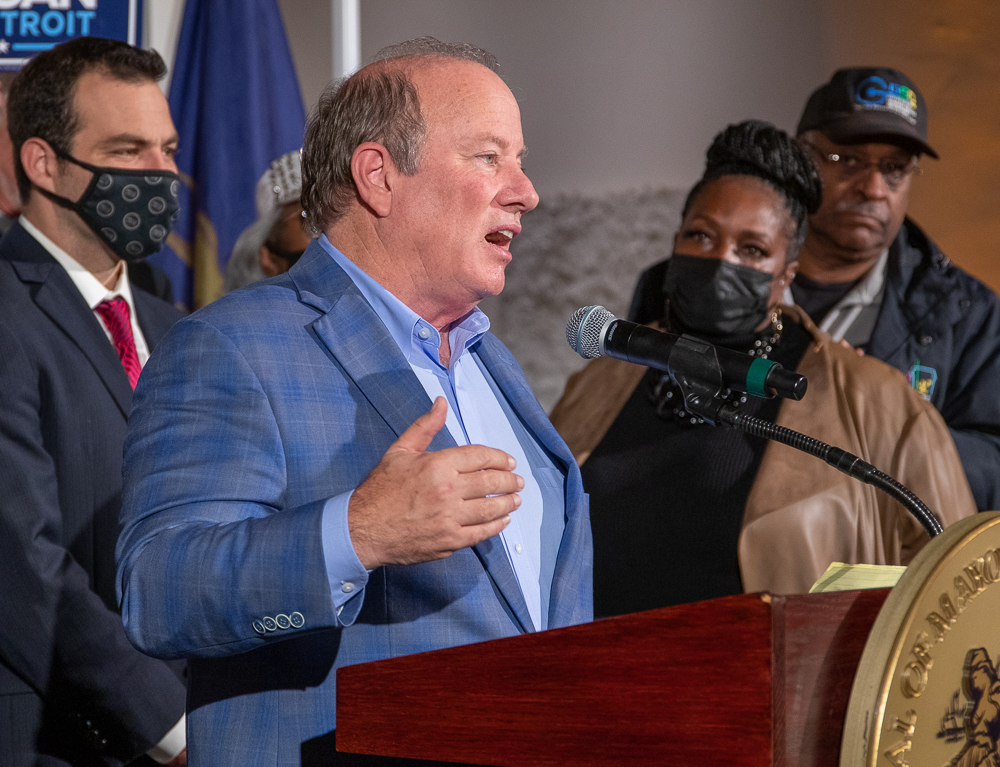
Brenda Lawrence has been in Congress since 2015 and Rashida Tlaib since 2019.
Seeing everyone – Blacks, minorities, women – in decision-making positions is a sign of a strong, pluralistic democracy and healthy economy. It’s the promise of America – anyone can be anything in our society. But unless a miracle happens outstate in Muskegon, Saginaw, Lansing or somewhere else with Black populations, this time next year the number of African Americans serving in Congress from Michigan is likely to be zero.
We haven’t seen that since the 1950s. The only African American in Michigan's congressional delegation, Brenda Lawrence, just announced her retirement. Hours later, current 13th District Rep. Rashida Tlaib, a Palestinian American, stepped up to run for what would have been Lawrence’s seat in the newly drawn 12th District. The area encompasses the west side of Detroit, Southfield and the western suburbs – including Dearborn, where most of the area’s Muslim and Arab Americans are now concentrated.
This leaves Indian-American Michigan Rep. Shri Thanedar and current Detroit School Board member and former state representative Sherry Gay-Dagnogo, the first of what's expected to be many African American candidates, to fight it out in the new 13th Congressional district covering the other half of Detroit and the eastern suburbs. Perennial candidate Articia Bomer, who is Black, has also announced, but as a Republican in a safe Democratic district, she's an unlikely contender.
Challenge of money
That leaves only one serious Black candidate in the running to represent the city – and the region – with the highest U.S. concentration of African Americans. And even if someone else steps up, she or he will have a steep money hill to climb.
Tlaib reportedly has a $4-million campaign war chest. Thanedar has pledged $5 million dollars of his own money to finance his run. Both have high name recognition, and if a bevy of African Americans get in the primary race, chances are those votes will be split and none will win.
Meanwhile, we have a group of Black politicians announcing their intent to file a lawsuit against the newly drawn political maps, alleging that the number of Black elected officials in the state will drop as a result of not having a majority of Black voting-age residents in either district.

Shri Thanedar (Campaign photo)
That will be a steep hill to climb. The number of Blacks elected to state and federal office from Detroit has been dropping for years. There are plenty of high-profile examples of non-Black politicians being elected in the city of Detroit.
And that draws attention from prominent white conservative Republicans, who now claim to support protecting the Black vote and representation. This is the same GOP whose members drew the last boundaries, and packed every Black person they could find into Detroit districts, effectively limiting our ability to elect Black politicians outside of Detroit. They would love to see the districts remain the same as a way to hang on to power.
Today’s politics also has Black leaders struggling with the idea that less is more because fewer Blacks in more districts stretching across the suburbs is billed as creating greater opportunity for Black representation at the state and federal levels. More African Americans live outside the city of Detroit than in it, according to the last census. That’s a first we’d better all get used to seeing.
We got spoiled. Everyone is so used to thinking of Detroit as a Black mecca with Black mayors, cops, stores, judges, music, food, etc. that when Republicans pulled their move to limit Black voices and representation, everybody said that’s cool. We still Black and in charge.
Those days are gone. Black political offices are changing hands just like Black-owned neighborhood grocery stores and gas stations did in the 80s – with new minority groups stepping up to take the reins. Wayne County Executive Warren Evans is the only Black leading one of Michigan’s 83 counties. He shares that distinction with the Wayne County clerk, sheriff and treasurer. Lieutenant Governor Garlin Gilchrist is also the only African American elected to serve in a statewide, executive branch office in decades.
Other Minority Groups
Other minority groups are rising politically. Hamtramck elected an all-Muslim mayor and city council. Dearborn leadership has gone from racist white to Middle Eastern.

Mayor Mike Duggan victory speech in November (Photo: Michael Lucido)
To be sure, Blacks have made strides politically in the suburbs, with mayors in Eastpointe, Harper Woods, Lathrup Village and other places. Stressing content over color is a sign of political maturity and faith in the democratic system. For more than a decade Blacks have elected non-Black politicians – Mike Duggan, Tlaib, Thanedar, Stephanie Chang, Hansen Clark and others.
It all undermines the argument of the yet-to-be-filed lawsuit over unpacking supermajority Black districts. We’ll see what happens. In the meantime, we know the new districts won’t really matter – non-Blacks are getting elected to represent Black communities now. But if Black representation really matters, then the only way we will see another generation of Brenda Lawrences in Congress will be to organize everywhere, with everyone to win.


 by
by








